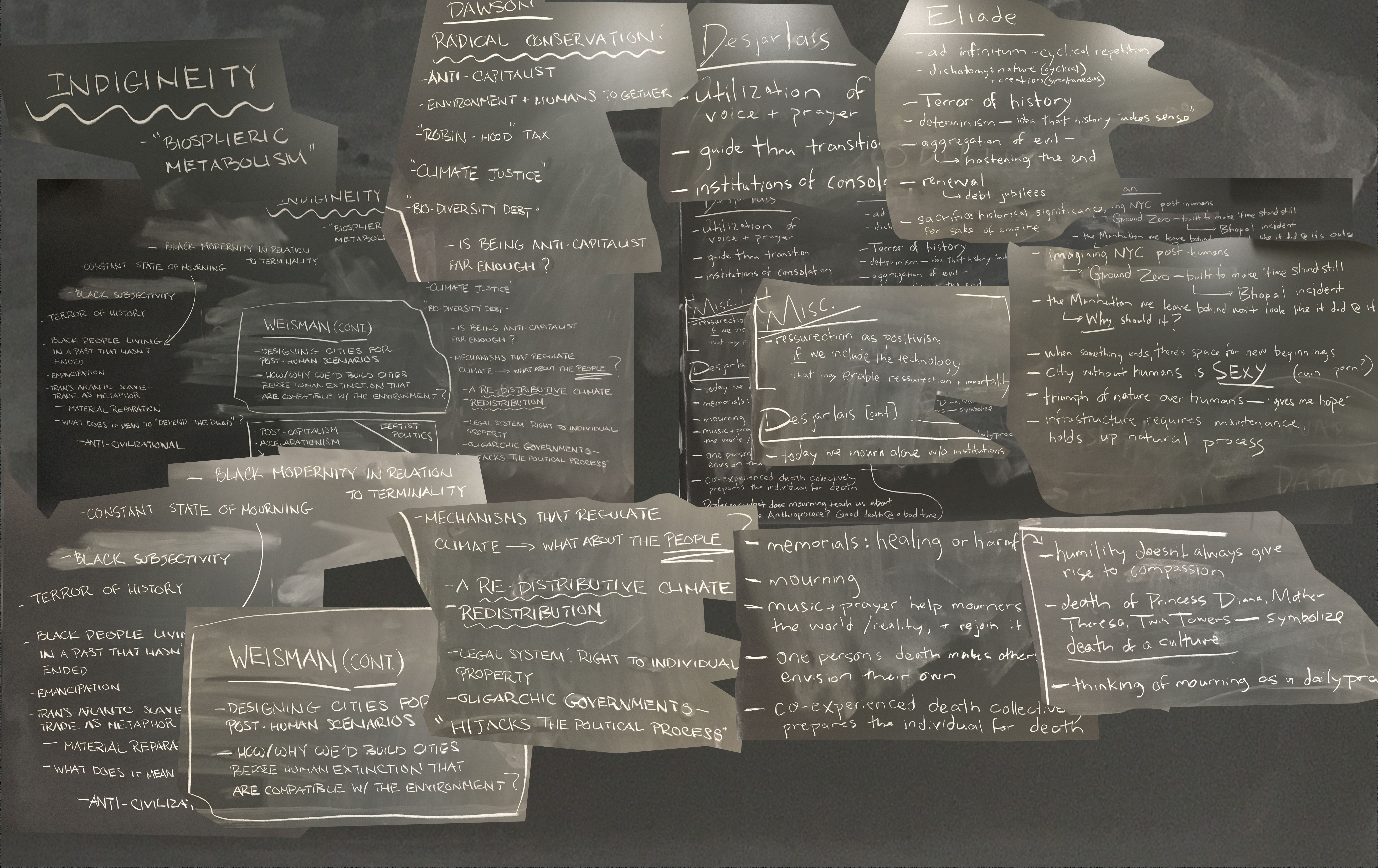Group: Raphael Barnes, Claire Paterson, Jack Plants
Basing our theories on American scholar and theorist Joel Kovel’s discussion within The Enemy of Nature: The End of Capitalism or the End of the World (2007)– who posits that “capital’s responsibility for the ecological crisis can be shown empirically” (51)– we suggest that the ultimate human telos is an inevitable destruction of the (natural) world by way of capitalist ventures. In other words, the anthropocentric worldview goes hand in hand with a seemingly insatiable capitalist agenda.
We posit that the first iteration of capitalist agenda in relation to the destruction of the natural world comes out of Enlightenment, modernist, and secularist thought. The wilderness has historically been conceived as a space imbued with hierophany– or, manifestations of the sacred. With the advent of colonization, these beliefs (often held by non-Western peoples) were considerably lessened in the face of dominant Christian ideologies. First, the wilderness was demonized, in that it was considered to be a breeding ground not only for supposedly “dark” forces, but also the general notion of the “unknown.” Later, nature was further reduced to a mere resource– one, which had to be commodified by capitalist ventures.
Articles to Consider:
“The Trouble with Wilderness and Constructing Nature” in Uncommon Ground by William Cronon (1996)
Protestanism, Capitalism, and Nature in America in “Journal of American Studies” by Mark Stoll (1999)

Recent Comments